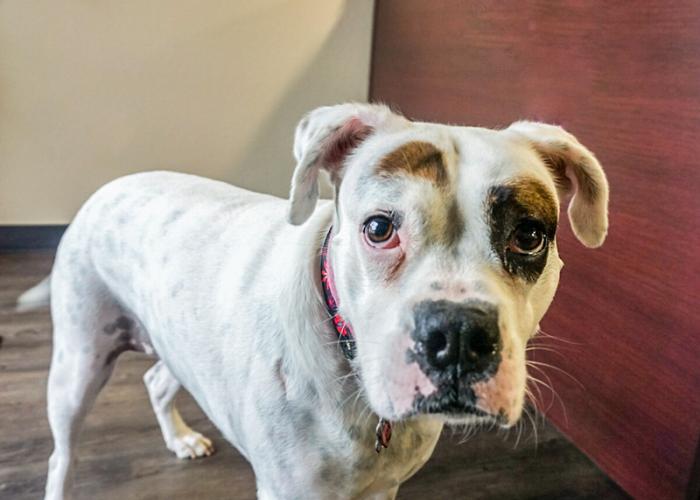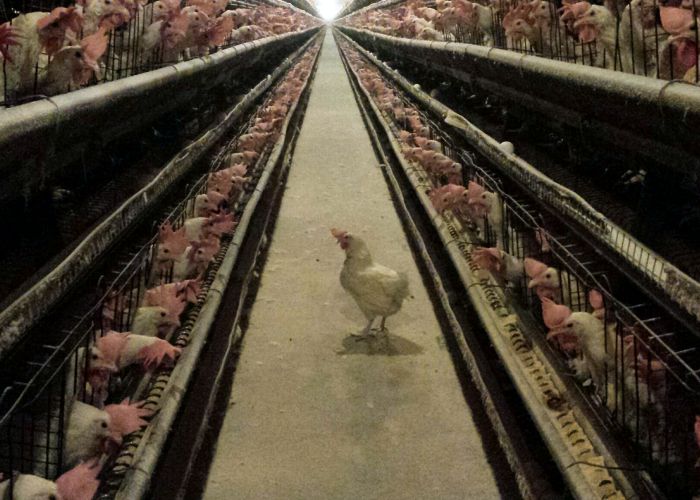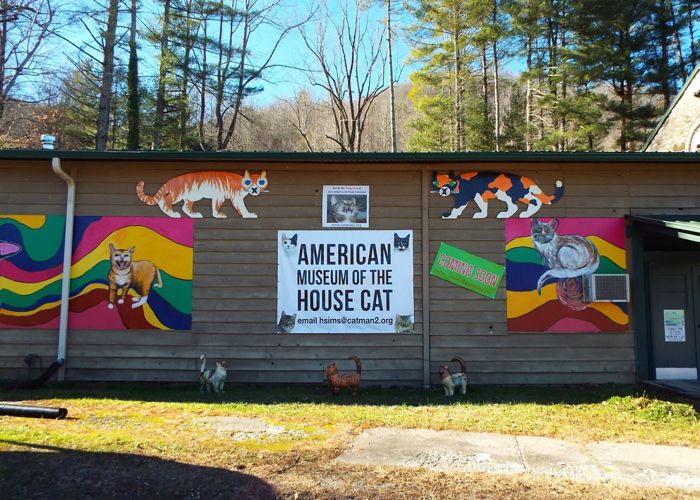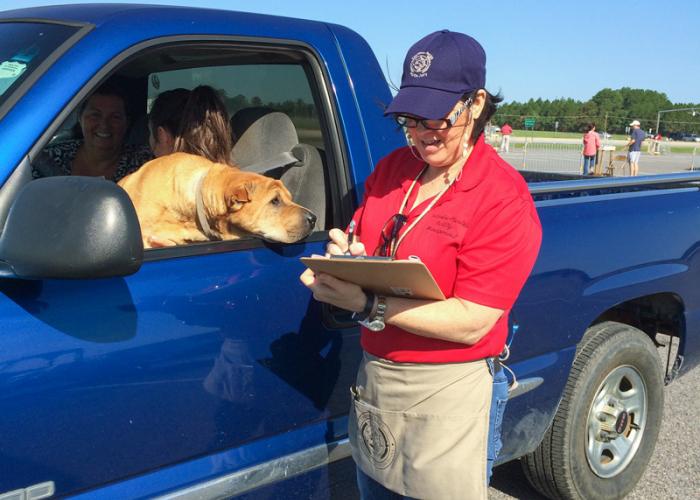Handle with care
Compassion fatigue expert offers advice for animal welfare workers
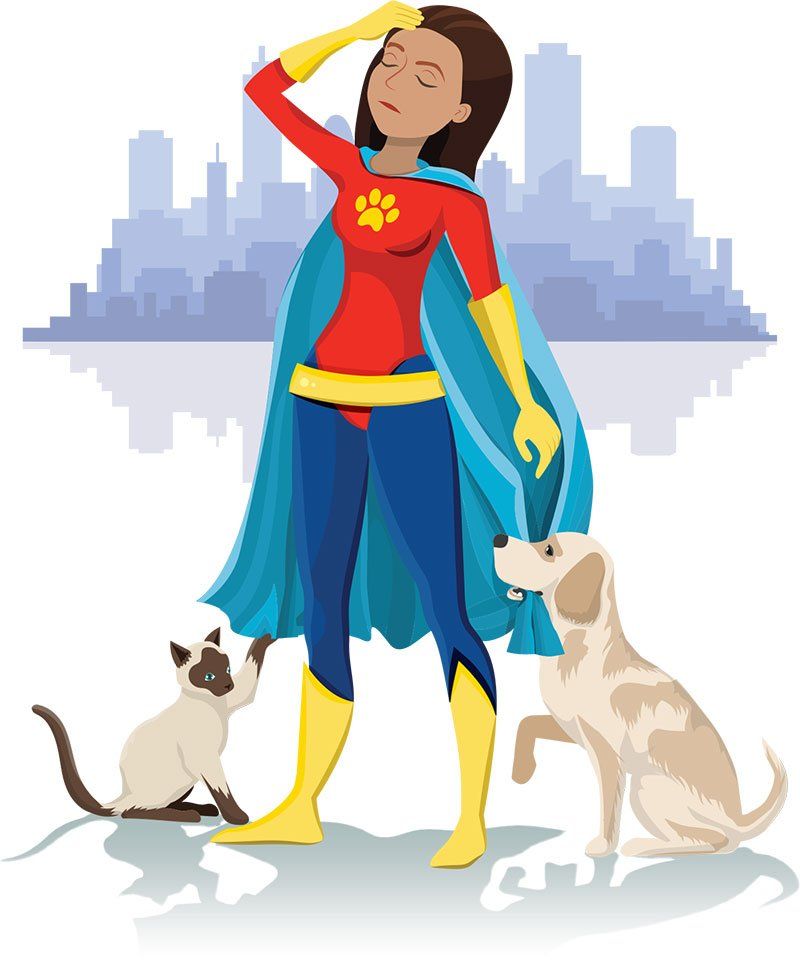
When Jennifer Blough first felt compassion fatigue, she had never heard the term. She was a lifelong animal advocate—she became a vegetarian at a young age, followed her grandmother to animal rights protests and got a job as an animal control officer—but she had never heard anyone mention the issue. So when she burned out from her job in 2012, she had no idea what was wrong with her.
It was while she was in graduate school, pursuing a master’s in counseling, that Blough heard about compassion fatigue. “I had a lightbulb moment where I recognized that this is what I had been going through all along. It wasn’t ‘I’m just not cut out for this’ or ‘I’m a weak person,’— no, I was struggling with compassion fatigue. Finally, all these symptoms had a name.”
Compassion fatigue is a condition that Blough describes as “the emotional and physical toll of caring for others.” It’s common in people who work with victims of trauma or suffering—no matter whether those victims are people or animals.
Blough is now the owner of a private counseling practice and the author of the book To Save a Starfish: A Compassion-Fatigue Workbook for the Animal-Welfare Warrior. In this edited interview with freelance writer Olivia Bobrowsky, she unpacks the basics of compassion fatigue and offers advice for the animal welfare community.
Tell us about your decision to study counseling and compassion fatigue.
Around the same time that I started feeling burned out from my work in animal shelters, I experienced the loss of my parrot, Albert, and that sent me spiraling into a depression. He was like a soul mate to me. Once I started to emerge out of that depression, I thought there had to be someone out there who could help people who grieve this hard for an animal. So I decided I’d go back to grad school and become that person. I specialized in pet loss grief and compassion fatigue within animal welfare workers because that’s where my passion lies.
Help us understand what compassion fatigue is exactly. What are the top symptoms to look out for?
I think trauma expert Charles Figley said it best: He said it’s the “cost of caring.” It’s the emotional and physical toll of caring for others, whether it’s people or animals who are suffering or who have been traumatized. We talk about caregiver stress (think of a nurse or a child caring for a sick parent), but compassion fatigue involves caring for a population that’s traumatized or suffering.
There’s a whole list of symptoms, but one really important one to watch out for is depression. When I talk about depression, I’m not talking in the clinical sense, although that could be there. Depression can look like feeling sad or lethargic, where you feel you’ve lost your passion or your drive. You’re just dragging yourself around and feeling apathetic.
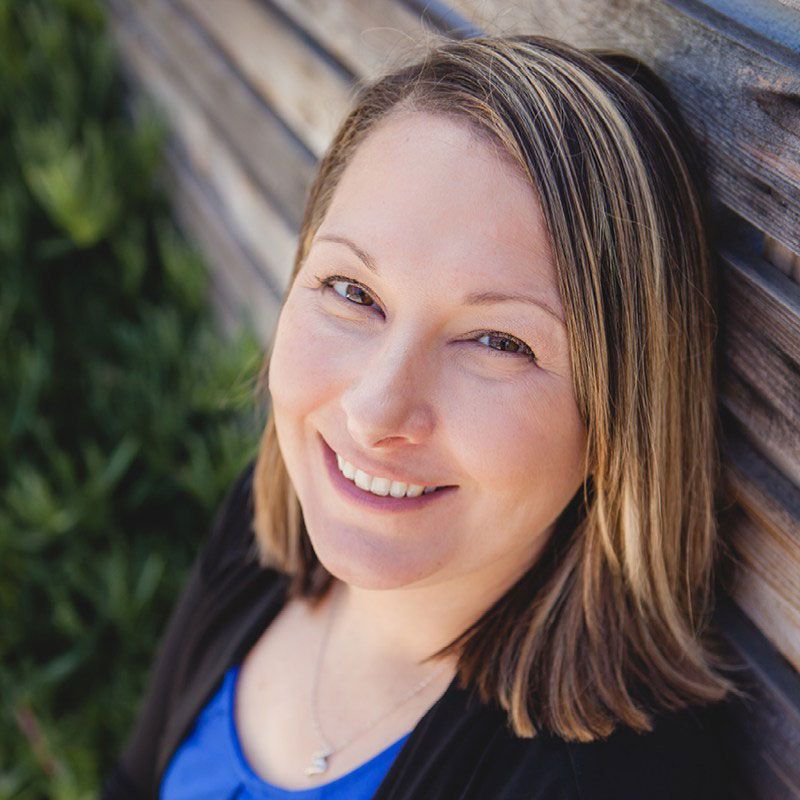
Another important sign to look for is unhealthy coping skills. People will start to abuse alcohol or drugs. People have developed social media addictions. Basically, anything that’s done to an extreme can be considered an unhealthy coping skill.
Anger is another top symptom. Working in animal welfare can change your worldview, and a lot of anger can result. I struggled with anger when I was in the field. I thought everyone abuses their animal and everyone surrenders their animal. I saw the worst in people.
What else is challenging about compassion fatigue in the animal welfare community?
Many people involved in animal welfare have a moral dilemma: They have to take the lives of the very animals they’re trying to protect. You don’t find this in other helping professions. As a therapist, do I work with suffering and traumatized people? Yes. Do I have to end their lives? No. Doctors deal with this on rare occasions, but in general, doctors and nurses save lives.
There’s also an incredible amount of grief and loss that’s not talked about enough in this community. Animal welfare workers and activists talk about large-scale grief. But they lose the animals they care for on a daily basis, sometimes. And animal loss is a form of disenfranchised grief—a type of grief that’s not widely validated by mainstream society. I’m sure many people have heard, “It’s just a dog; you’ll get another one.” You wouldn’t say that to someone who’s lost a human child. If an animal in your shelter dies, people might say, “Well, it wasn’t your pet. What are you sad about?” Some people don’t get it.
What can you do if you are experiencing compassion fatigue?
There are three main buffers to managing compassion fatigue. The first one is this buzzword that you’re hearing all the time now: self-care. But self-care is not getting a massage every day; it’s not luxurious. Selfcare activities make you more resilient in the face of stress. This could include getting a good night’s sleep, eating a healthy diet, exercising or engaging in hobbies outside of animal work. Self-care looks different to different people.
The second buffer is support. Support could look like personal therapy, or it could look like a close friend or family member who you can talk to without the fear of judgment. Support could even be Facebook groups. It’s finding a person or a group of people that you can talk with and process all these heavy emotions.
The third element is compassion satisfaction. That’s the joy you get from the work. It’s the little victories. Rather than focusing on the euthanasia, you focus on the adoptions. Rather than focusing only on factory farming, you also focus on legislation that’s being passed. If you only focus on the negative, it can lead to a very dark place, and I’ve been there. And to be honest, I still go there from time to time. Compassion fatigue is not something I have found the magic cure to. I’m still involved in animal rights, so I have to manage it like everyone else. I have to be aware of my own warning signs and take steps to prevent it.
Learn more: Licensed counselor Jennifer Blough is building a members-only website for the animal welfare community with online courses and a forum focused on compassion fatigue education; visit compassionfatiguecouch.com or email compassionfatiguecouch@gmail.com.


